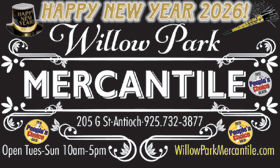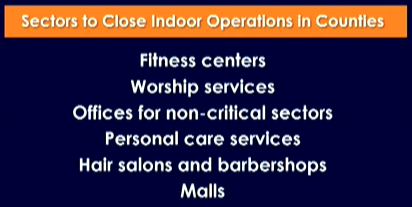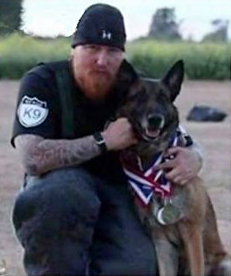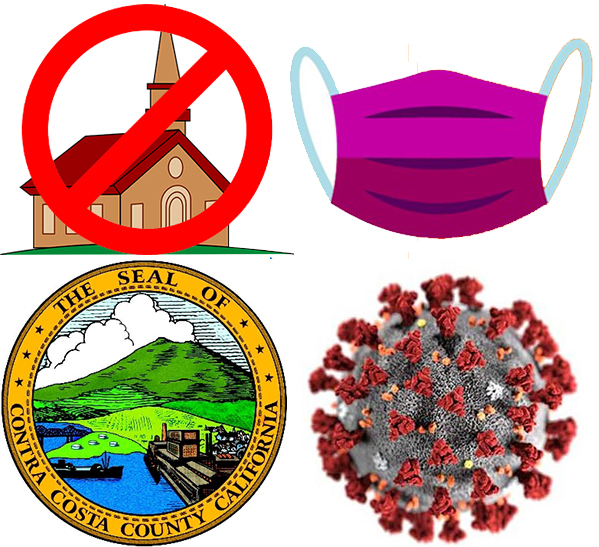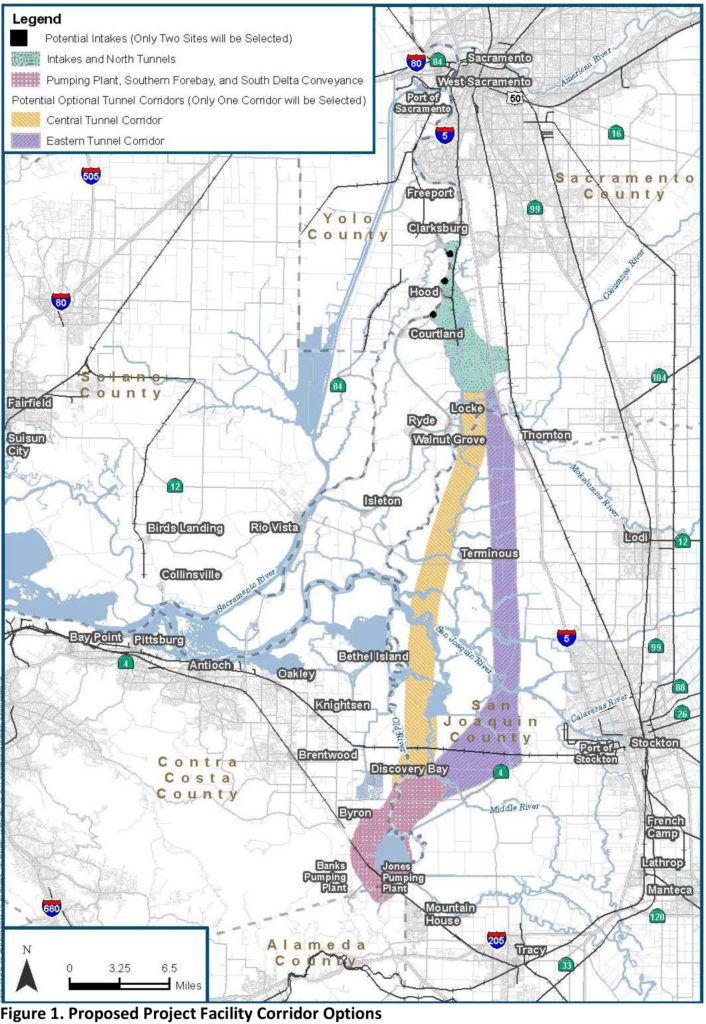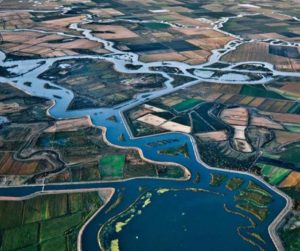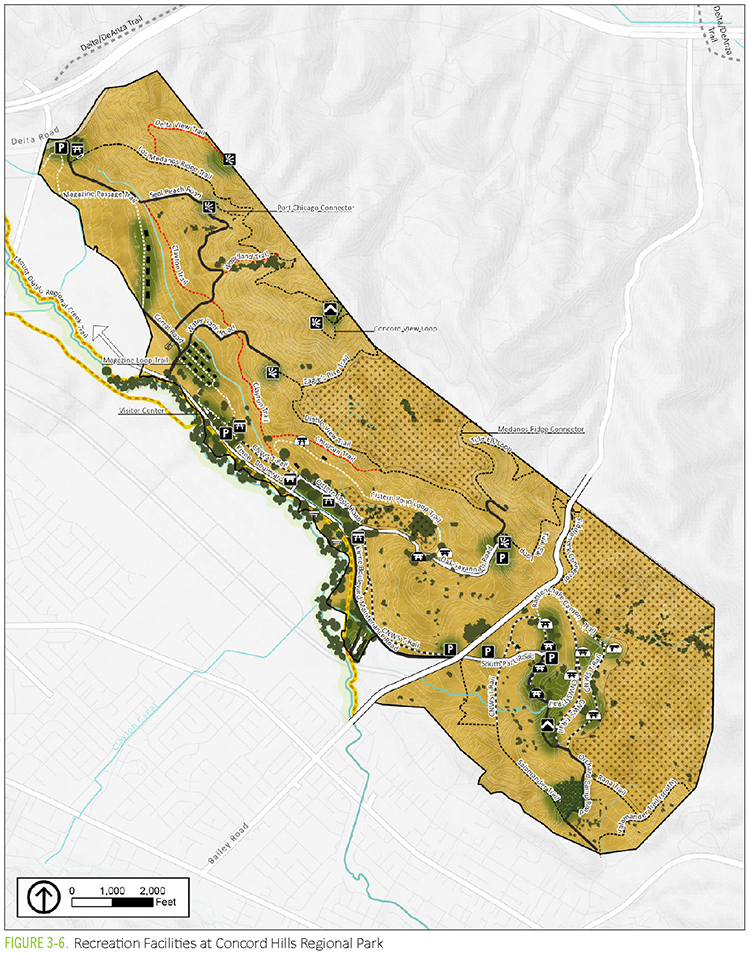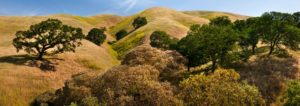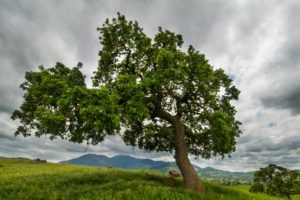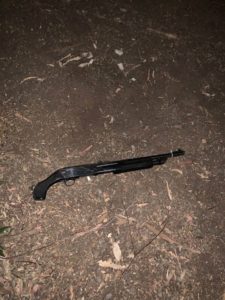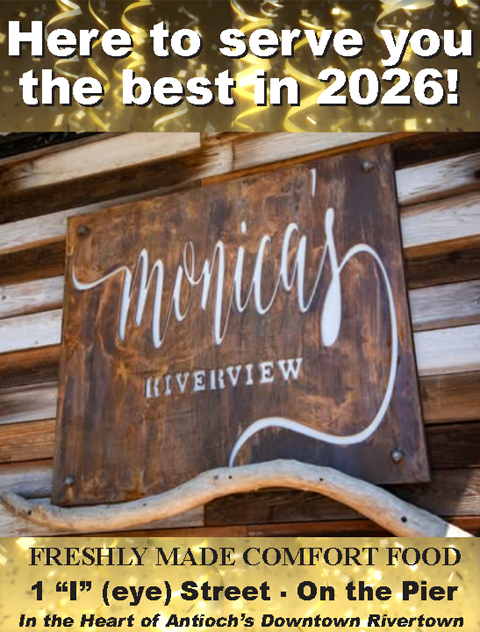Governor Gavin Newsom provides an update on the state’s response to #COVID19.
Posted by California Governor on Monday, July 13, 2020
“We’re turning back into a modification mode of our stay-at-home order.” – Gov. Newsom
Order affects some activities, businesses in Contra Costa County
By Allen Payton
“Looking at the conditions…based on the trend lines, based on the science…increased positivity rates…increased hospitalizations,” California Governor Gavin Newsom announced today he is using a “dimmer switch” for statewide actions.
“We are requiring all counties to close their indoor activities, including restaurants, wineries, tasting rooms, movie theaters, family entertainment centers, zoos and museums, card rooms and the shuttering of all bars,” he stated.
It applies to all counties, not just those on the monitoring list. However, all of those activities have already been closed in Contra Costa County, so that part of Newsom’s order doesn’t affect those in our county.
The governor called for the expansion of “opportunities for outdoor operations,” but didn’t elaborate.
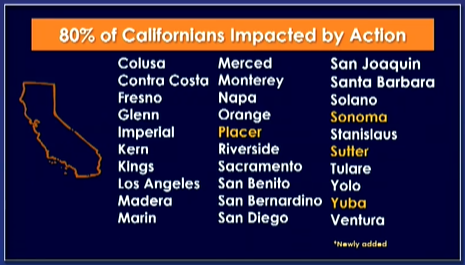 He shared additional sectors that must be shuttered in the counties on the monitoring list, of which Contra Costa County is one.
He shared additional sectors that must be shuttered in the counties on the monitoring list, of which Contra Costa County is one.
“For all the counties on the monitoring list we are directing they close indoor operations in additional sectors: fitness centers, places of worship, offices for non-critical sectors, personal care services, that includes hair salons and barber shops, and indoor malls” Newsom stated.
“It’s a dynamic list. Counties come on, counties come off,” he said.
Newsome spoke of the increasing number of cases, positivity rate, hospitalizations and ICU admissions.
“As of yesterday, in the latest reporting periods, we had 8,358 cases. For the seven-day average there were 8,211 new cases per day,” he shared. “So, you see that seven-day average trending up.”
“The positivity rate has settled in and…over a 14-day period is 7.4%, over a 7-day period it’s 7.7%,” he explained. “This represents a 21% increase in positivity rate over a seven-day period.”
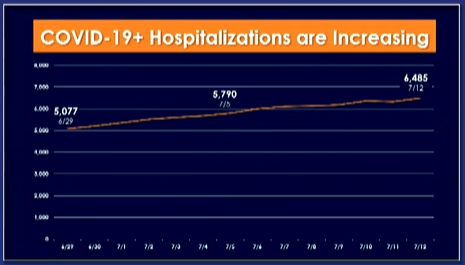 He also spoke of an increase in hospitalizations and ICU admissions.
He also spoke of an increase in hospitalizations and ICU admissions.
“We’re seeing a modest reduction in the rate of growth…in the total number of people hospitalized,” Newsom stated.
“That represents a 20% increase over a two-week period, last week it was a 39% increase over a two-week period,” he said.
Newsom then reiterated wearing of masks, and said, “we’ll get through this” and thanked everyone “from the bottom of my heart for your perseverance, for your patience” and called on Californians to “our need to maintain our vigilance” and “continue to do the good work we’ve done as a state…so we can work through this, get to the other side more resilient, more capable than ever.”
Newsom then held a question and answer session.
According to a County Health Services press release, California COVID-19 closures affect some Contra Costa businesses.
Due to a sharp rise in COVID-19 activity, California Governor Gavin Newsom today announced the temporary closure of several types of indoor businesses and activities.
Effective immediately, all counties must close dine-in restaurants, bars, wineries and tasting rooms, movie theaters, family entertainment centers such as bowling alleys and arcades, zoos and museums, and cardrooms.
None of these types of businesses had previously reopened under Contra Costa County’s social distancing ordinance and must remain closed under the state order.
Breweries, brewpubs and pubs must “close all operations indoor and outdoor statewide,” according to the state’s COVID-19 web page.
Additionally, Gov. Newsom required counties that have remained on the California Department of Public Health’s county monitoring list for three or more consecutive days to close additional businesses and activities, effective immediately.
Contra Costa does meet the criteria, so this part of the governor’s order does apply to the county. Some businesses and activities that had previously been permitted in the county are affected:
- Offices for “non-essential” business sectors, as determined by the state – visit ca.govfor more information when it becomes available.
- Hair salons and barber shops
- Indoor malls
All of these businesses and activities are required by the state to close today unless their operation can be modified to be outside or by pickup.
Other businesses and activities required by the state to close in watch-list counties include indoor worship services and indoor protests, which Contra Costa also suspended with its own local order effective today.
Fitness centers and personal care services, such as nail salons and tattoo parlors, were also named in the state order but had not previously reopened in the county.
For more information about today’s order from California, visit covid19.ca.gov.
Contra Costa Health Services urges everyone to continue taking simple steps to protect themselves from COVID-19: Follow the social distancing order, and wear a face covering when you leave home or when you are near other people. Wash your hands thoroughly and frequently, and always stay home from work or school if you are not feeling well.
Visit cchealth.org/coronavirus for local information about Contra Costa’s response to the COVID-19 pandemic.
Read More
By Allen Payton
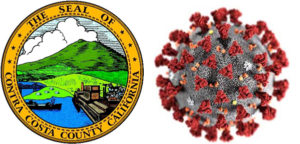 In response to Gov. Newsom’s order on June 30 giving counties and cities the authority to extend their moratoriums on rent payments and evictions to Sept. 30, the Contra Costa County Board of Supervisors will consider extending the county’s moratorium during their meeting on Tuesday, July 14. The current moratorium expires on Wednesday, July 15. (See agenda item D9)
In response to Gov. Newsom’s order on June 30 giving counties and cities the authority to extend their moratoriums on rent payments and evictions to Sept. 30, the Contra Costa County Board of Supervisors will consider extending the county’s moratorium during their meeting on Tuesday, July 14. The current moratorium expires on Wednesday, July 15. (See agenda item D9)
The proposed ordinance offers a variety of reasons for extending the moratorium, including:
“The COVID-19 pandemic and associated public health orders have resulted in the closure of many local small businesses, and have imposed extreme restrictions on other local small businesses.
The COVID-19 pandemic and associated public health orders are expected to result in a loss of income to a widespread portion of the local population that depend on wages or business income to pay rent and result in medical expenses for certain Contra Costa County residents.
Contra Costa County and the cities within the County are also experiencing a housing affordability crisis, which is driving homelessness and displacement of residents.
Many County residents are experiencing or will experience losses of income as a result of the local emergency and shelter-in-place orders, hindering their ability to pay rent and leaving them vulnerable to eviction.
Many of the County’s renters are rent-burdened, paying over 30 percent of their income on rent, and some renters are severely rent-burdened, paying over 50 percent of their income on rent, which leaves less money for families to spend on other necessities like food, healthcare, transportation, and education.
Without local protection, eviction notices, including notices for failure to pay rent, are likely to surge as residents and businesses are unable to earn income due to the COVID19 pandemic, or are forced to pay medical expenses associated with the COVID-19 pandemic; and
Housing displacement due to rent increases and evictions occurring during the local emergency would hinder individuals from complying with state and local directives to shelter at home, and would lead to increased spread of COVID-19, overburdening the healthcare delivery system and potentially resulting in greater loss of life.”
If the board members vote to extend the moratorium, they will have to choose which date, up to September 30th, they want it extended.
The meeting begins at 8:30 a.m. and can be viewed live on Comcast Cable 27, ATT/U-Verse Channel 99, and WAVE Channel 32, and can be seen live online at www.contracosta.ca.gov.
Those who wish to address the board during public comment or with respect to any item that is on the agenda may call in during the meeting by dialing 888-251-2949 followed by the access code 1672589#. To indicate you wish to speak on an agenda item, please push “#2” on your phone.
Read MoreBy Scott Alonso, Public Information Officer, Contra Costa District Attorney
On July 10, the Honorable Patricia Scanlon sentenced the owner of NorCal K 9 Garry Reynolds (39-years-old) to two years in state prison. Earlier this year, a jury found Reynolds guilty of four felonies – all counts of animal cruelty for each dog under the care and supervision of NorCal K9, a dog training business. The jury found Reynolds was criminally negligent in the care of four animals under his company’s care in Antioch. (See related article)
Reynolds was remanded into custody immediately after he was sentenced. Judge Scanlon also denied a motion by Reynolds’ attorney to reduce the charges to misdemeanors and the motion for a new trial. Deputy District Attorney Arsh Singh prosecuted the case on behalf of the People. DDA Singh is assigned to the Felony Trial Team.
“I am satisfied the defendant will serve time in state prison due to his extreme negligence and disregard for the animals under his company’s care,” DDA Singh stated. “This case should serve as a wakeup call for any dog training company in our community. Animals deserve to be protected and treated well. Our Office will not tolerate the abuse of any animal.”
The City of Antioch started an investigation into the house where the dogs were located at 5200 Lone Tree Way. The investigation started as a code enforcement matter but progressed to a criminal investigation led by the Antioch Police Department due to a dog’s death. Two dogs were eventually euthanized due to the injuries the dogs suffered.
The investigation also led police to Devon Ashby, an employee of NorCal K9. Ashby was charged by the DA’s Office for his involvement in this case and he pleaded guilty to a misdemeanor count of animal cruelty.
The following dogs were associated with the jury’s earlier guilty verdict:
- Gunner, Doberman
- Favor, Cane Corso
- Zeus, German Shepherd
- Rambo (Bo), Labro-Poodle
Case information: People v. Garry Reynolds, Docket Number 05-191200-5
Read More
OPINION
By Jon Coupal, President, Howard Jarvis Taxpayers Association
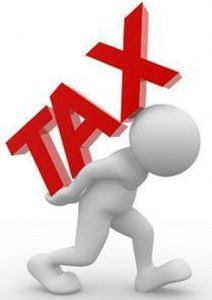 The assaults on California property owners and taxpayers never stop. And once again the California Legislature has advanced a massive tax increase at the last possible moment when they thought no one was paying attention.
The assaults on California property owners and taxpayers never stop. And once again the California Legislature has advanced a massive tax increase at the last possible moment when they thought no one was paying attention.
Assembly Constitutional Amendment No. 11 (ACA11), approved by the California Legislature, takes away Proposition 13 protections that California families have under current law and replaces them with a billion-dollar tax increase. Voters will have an opportunity to reject this scheme come November, as ACA11 will appear on the ballot as Proposition 19.
After the historic passage of Proposition 13 in 1978, Californians finally had certainty about their future property tax liability because increases in the “taxable value” of property were limited to 2 percent per year. Property would be reassessed to market value only when it changed hands. To prevent families from getting hit with huge tax increases, voters overwhelmingly passed Proposition 58 in 1986, changing the state constitution to ensure that transfers of certain property between parents and children could occur without triggering the sticker shock of reassessment.
Under Prop. 58, a home of any value and up to a million dollars of assessed value of other property may be transferred between parents and children without reassessment. Proposition 19 (2020) would repeal Proposition 58 (1986) and force the reassessment of inherited or transferred property within families. The only exception is if the property is used as the principal residence of the person to whom it was transferred, and even that exclusion is capped.
The Legislative Analyst’s Office estimates that the repeal of the “intergenerational transfer protections” guaranteed by Props. 58 and 193 will result in 40,000 to 60,000 families getting hit with higher property taxes every year. Prop. 19’s massive tax increase has been included in this initiative to offset another proposed constitutional change: the expansion of the ability for older homeowners to move to a replacement home and transfer their base-year property tax assessment from their previous home to the new property. While this “portability” expansion has some merit, voters rejected this idea in 2018. Oddly, the backers of the proposal think they can sell it again by adding a tax increase.
As ill-advised as Proposition 19 is as matter of policy, the contortions executed by the California Legislature to place it on the ballot were nothing short of bizarre. The primary sponsor of ACA11 was the California Association of Realtors (CAR) which first wrote a similar proposal as an initiative and gathered signatures to put it on the ballot. It appears CAR is motivated by the desire to churn more home sales, even at the expense of a multi-billion-dollar tax increase.
For reasons related to placating progressive Democrats in the Legislature as well as labor unions, CAR wanted to withdraw its previously qualified initiative and have the Legislature replace it with a similar tax increase proposal.
But something funny happened on the way to the ballot. CAR missed the constitutional deadline for withdrawing its initiative, so as a matter of law, it appeared that there would be two nearly identical measures on the ballot, causing confusion, not to mention additional costs. So, Secretary of State Padilla dutifully took the CAR measure off the ballot even though he had already certified it under the procedures set forth in the California Constitution.
Our current political establishment ignores all rules and laws when it comes to achieving a desired political end. And, as usual, the desired end here is billions of dollars in higher property taxes.
Read MoreMore than 8% of Contra Costa COVID-19 tests now positive
From Contra Costa County Health Services
Due to a sharp rise in the percentage of COVID-19 tests returning positive in the community, Contra Costa County Health Officer, Dr. Chris Farnitano today, Saturday, July 11, 2020 amended its social distancing health order to temporarily tighten face-covering requirements and prohibit indoor gatherings where there is elevated risk of spreading the virus. (See details, here and CCC Full Health Order 07-11-20)
Local data show that 8.04 percent of COVID-19 tests administered over the past seven days were positive, a sign that the virus is spreading rapidly in the county and that the community must take immediate steps to prevent our healthcare system from becoming overwhelmed.
Contra Costa is especially concerned about the risk of COVID-19 transmission in indoor gatherings, and in gatherings that involve removing face coverings for eating and drinking.
When Contra Costa received authorization (variance) from the California Department of Public Health in June to allow the reopening of some businesses and activities, the plan we submitted indicated that an 8% testing positivity rate would trigger the review and reconsideration of reopening activities in the county.
Other indicators show COVID-19 is on the rise in Contra Costa communities. The seven-day average number of new cases identified in the county rose from 38 on June 8 to 146 on July 8, while the seven-day average number of hospitalized COVID-19 patients rose from 17 to 54 during the same period. As of Saturday morning at 11:30 a.m. there are no 77 COVID-19 patients in Contra Costa County hospitals. (See more statistics on the CCHealth Coronavirus Dashboard)
The 209 adult intensive care unit beds in Contra Costa County hospitals are on average a little more than half-full on a given day, including COVID-19 patients and patients with other health concerns.
Given the rapid spread of local cases, Contra Costa Health Services (CCHS) is concerned that the number of patients needing intensive care could quickly exceed capacity.
According to the new health order, indoor worship services are temporarily prohibited, effective on Sunday at 11:59 p.m. Services held earlier on Sunday, July 12, are not subject to this change.
Certain categories of outdoor gatherings, including worship services and social protests, are permitted at any size in Contra Costa so long as state health guidelines are followed, including physical distancing and appropriate use of face coverings. (State guidelines for outdoor worship services and protests)
In outdoor dining settings, staff and customers must now observe face covering requirements at all times, except when putting food or drink in the mouth. The new order also increases guidance for businesses that serve alcohol with meals to better align with state guidelines.
Members of extended family “social bubbles” must now always use face coverings when together, except when putting food or drink in the mouth.
Contra Costa County hopes to ease these enhanced, extraordinary safety measures as soon as possible, and will review available health system data daily to determine when it is safe to do so.
CCHS urges everyone to continue taking simple steps to protect themselves from COVID-19: Follow the social distancing order, and wear a face covering when you go out or are near other people. Wash your hands thoroughly and frequently, and always stay home from work or school if you are not feeling well.
In response, the following questions were sent to Contra Costa County Health Officer Dr. Chris Farnitano, Board of Supervisors Chair Candace Andersen and the county health communications staff:
Why are indoor church services being shut down, again?
What statistics can you show that they were the direct cause of the spike in the recent COVID-19 cases in our county? Especially since those who attend worship services have been required to social distance and wear masks while attending an indoor service.
Might it be from other activities such as swimming or a variety of other activities?
Is everyone who gets tested given a questionnaire in which they report what their activities have been for the previous 14 days? If so, can you please provide a copy of the questionnaire?
If not, how do you know and are you merely making assumptions and an arbitrary decision to once again unfairly target people of faith who have the most First Amendment protections while exercising their freedom of religion than any other activity in our nation, since they also have the freedom of peaceful assembly?
Finally, how many of the positive cases in our county are from people outside of the county being brought into our county from elsewhere?
Please check back later for answers to these questions and more.
Visit cchealth.org/coronavirus to read the new health order, and for local information about Contra Costa’s response to the COVID-19 pandemic.
Allen Payton contributed to this report.
Read More
“do not come to the protest armed or with an intention to commit violence…We have a large contingent of personnel from every agency in Contra Costa County that will be here on Sunday to assist us.” – Chief Manjit Sappa
Downtown businesses board up out of fear and precaution.
A large protest is expected in Martinez, Sunday afternoon following the painting of a permitted mural on Court Street with the words BLACKLIVESMATTER, and an effort by a couple to paint over it with black paint. They have since been charged with a hate crime. (See related articles here and here)
According to a KPIX5 CBS SF BayArea news report, “several downtown businesses have already boarded up their windows. ‘It’s just added expense, at a time and added frustration, not knowing how this is going to end up,’ explained Ernie Guerrero as he unloaded plywood outside of his restaurant, La Tapatia Mexican Cuisine.”
Message from the Chief of Police
July 11, 2020
Dear Community:
As we get closer to Sunday, I thought it would be prudent to share information about our preparation for the protest on Sunday. As it stands, we have all of our dedicated sworn personnel working in the field on Sunday to keep our community safe. They work diligently each and every day to serve our community and will be doing all they can to ensure our community’s safety.
We have a large contingent of personnel from every agency in Contra Costa County that will be here on Sunday to assist us. I want to thank the Contra Costa County Sheriff’s Office and every Police Chief in Contra Costa County for sending first responders to the City of Martinez in light of the large protest on Sunday. I also want to thank the Contra Costa County Fire Protection District for being great partners and helping plan for any medical needs that may arise.
In the past day, we have been getting information from social media that folks with different viewpoints will be in our city to protest. We have learned that some may be coming with the intention of protecting the community from protestors or protecting the police officers working the event and while I appreciate that thought, DO NOT come to the protest armed or with an intention to commit violence. The job of a police officer in today’s world is tough – it is complicated, difficult, and yet we still have good men and women that come to work each day to help others and safeguard communities. Our officers are fantastic and value the great relationship with our community; it would seem natural that many in our community want to protect us and I could not be more thankful for that thought, but the best protection you can give us is by letting us do our job of protecting our community.
Bringing a weapon of any kind to a peaceful protest or illegally carrying a weapon into our community could serve as a flashpoint for an escalation of events. Please help us keep calm in the community and de-escalate any conflict. Many of our residents and community members are worried, scared, and feel helpless that different groups are converging on our small town; I share their concerns and I implore anyone coming to Martinez on Sunday to strive to put your best foot forward. Feel free to gather, feel free to speak, feel free to exercise your First Amendment Right. Please DO NOT engage in toxic, violent, hateful, or unsafe behavior. It will put everyone at risk and create safety issues for the officers working on Sunday.
In the event that the protest devolves and there are acts of violence or damage in a manner that places the community at risk, we will be forced to disperse the crowd and I want to be transparent in that regard. We will be tolerant and work with all of you for a peaceful event – we implore you to not force us to respond in a manner that requires we take immediate action to end the event. For the sake of our community and everyone involved, we ask that you do all you can to ensure that the event is peaceful. For all protestors – as a community we ask that you do not disrespect us by damaging our city. Be kind and let’s all work together to ensure we have a safe and uneventful day that is positive. I sincerely appreciate you adhering to our request for a safe and peaceful weekend.
Sincerely,
Manjit Sappal
Chief of Police
Allen Payton contributed to this report.
Read More
This week’s DCP Environmental Planning Update includes:
- Adoption of a Mitigated Negative Declaration and Approval of Soil Collection Activities
- Announcement of Federal Environmental Review
Delta Conveyance Project Scoping Summary Report Now Available
By Allen Payton
What was planned as two tunnels beneath the California Delta to divert fresh water from north of the Delta to areas south, is now a single tunnel plan that is referred to as the Delta Conveyance Project (DCP). The state previously referred to the two tunnel project as the WaterFix.
Although the state Department of Water Resources (DWR) rescinded all approvals of the WaterFix twin tunnel project last year, the Delta Conveyance Design and Construction Authority continues engineering and geotechnical work on the single tunnel project under DWR’s supervision.
On May 2, 2019 the DWR announced it was taking formal steps to withdraw proposed permits for the WaterFix project and began a renewed environmental review and planning process for a smaller, single tunnel project that will protect a critical source of water supplies for California. Those actions implement Governor Gavin Newsom’s direction earlier in 2019, to modernize the state’s water delivery infrastructure by pursuing a smaller, single tunnel project through the Sacramento-San Joaquin Delta. The project will be designed to protect water supply reliability while limiting impacts on local Delta communities and fish. The actions also follow the governor’s executive order directing state agencies to develop a comprehensive statewide strategy to build a climate-resilient water system.
The purpose of the new DCP is “to develop new diversion and conveyance facilities in the Delta necessary to restore and protect the reliability of State Water Project (SWP) deliveries and, potentially, Central Valley Project (CVP) water deliveries south of the Delta, consistent with the State’s Water Resilience Portfolio [WRP].”
California Natural Resources Secretary Wade Crowfoot described it as “A smaller project, coordinated with a wide variety of actions to strengthen existing levee protections, protect Delta water quality, recharge depleted groundwater reserves, and strengthen local water supplies across the state” that “will build California’s water supply resilience.”

Map of intake, maintenance shaft and facility locations for the two alternative routes. From DCA 2020-05-27-UpdatedMapBooks
No Participation by Contra Costa County or Water Agencies
So, the effort to move fresh Delta water south, continues. But none of the water agencies in Contra Costa County are part of the DCA. They all either oppose or have chosen to remain neutral on the proposed tunnel in the face of almost complete opposition by county residents.
Instead, Contra Costa County is part of the five-member Delta Counties Coalition, along with Sacramento, San Joaquin, Solano and Yolo Counties all opposing the tunnel project.
However, there are four county residents who are members of the DCA’s Stakeholder Engagement Committee. Learn more about them, their opposition to the project and what they’re doing to limit and ensure the project mitigates any impact on county residents and businesses in Part 2 of this report.
The DCA participating state water contractors include the following agencies:
- Alameda County Water District (At Large)
- Alameda County Flood Control and Water Conservation District, Zone 7 (At Large)
- Antelope Valley-East Kern Water Agency (At Large)
- Coachella Valley Water District (At Large)
- Metropolitan Water District of Southern California (2 Permanent Seats)
- Mojave Water Agency (At Large)
- San Bernardino Valley Municipal Water District (At Large)
- San Gorgonio Pass Water Agency (At Large)
- Santa Clara Valley Water District (Permanent Seat)
DCA officers serve two-year terms. The SWC At Large Director and Alternate Director represent all participating State Water Contractors without a permanent Board seat. Directors and Alternate Directors are determined by the participating State Water Contractors. In addition, the Joint Powers Agreement allocates a Board seat to Kern County Water Agency. This seat is currently unfilled as Kern County Water Agency has not joined the DCA
$11 Billion Price Tag Could Quadruple
According to Barbara Barrigan-Parrilla, Executive Director of Restore the Delta, “the $11 billion figure quoted for construction of the Delta Conveyance Project is dated and incomplete. The $11 billion figure is in 2018 dollars. In 2018, Metropolitan Water District claimed inflation for construction should be calculated at 5% interest annually. That puts the project over $12 billion today without all the mitigation measures discussed by the Design Construction Authority in stakeholder meetings with Delta community members. These externalized mitigation costs will be absorbed by taxpayers.
Before bond interest, and with externalized mitigation costs, inflation roughly would put construction costs closer to $20 billion. Bond interest generally speaking would double the cost to $40 billion. And if the state is going to make Delta communities whole and leave the Delta ‘better off’ than it is presently, additional billions of dollars would need to be spent.”
Latest Updates & Reports
This week, the DWR issued an update and scoping report on environmental planning for the single tunnel project.
DWR Adopts Mitigated Negative Declaration and Approves Soil Collection Activities
On, Thursday, July 9, 2020, consistent with the requirements of the California Environmental Quality Act (CEQA), the Department of Water Resources (DWR) adopted the Final Initial Study/Mitigated Negative Declaration (IS/MND) for soil investigations in the Sacramento-San Joaquin Delta (Delta). As part of the CEQA process, DWR also formally approved the action and adopted a Mitigation Monitoring and Reporting Plan (MMRP). Soil investigations will include data collection, soil samples and surveys in support of DWR’s efforts to better understand the region’s geology to support the future evaluation of potential activities, including the proposed Delta Conveyance Project. As identified in the Final IS/MND, any potential significant impact will be avoided or otherwise mitigated with implementation of mitigation adopted as part of the project approval process. To access a copy of the Notice of Determination and Final IS/MND, which includes responses to comments and the adopted MMRP, visit the Delta Conveyance Environmental Planning page on DWR’s website.
U.S. Army Corps of Engineers to Prepare an Environmental Impact Statement Under the National Environmental Policy Act
The U.S. Army Corps of Engineers (USACE) has informed DWR that it will conduct federal environmental review of the proposed Delta Conveyance Project. USACE, which has regulatory authority over certain actions within specifically defined waters in the United States, will prepare an Environmental Impact Statement (EIS) under the National Environmental Policy Act (NEPA). Later this summer, USACE will issue a Notice of Intent officially announcing the start of preparation of the EIS. USACE’s letter to DWR can be found here.

The tunnel shaft will be drilled 150 feet below ground. From DCA SEC 2019-12-11-Delta Conveyance System Overview
Delta Conveyance Project Scoping Summary Report Now Available
The Department of Water Resources (DWR) has published a Scoping Summary Report for the proposed Delta Conveyance Project. This scoping report is a summary of the public scoping period that concluded in April. It includes all public comments received. The information collected during scoping will help inform the ongoing environmental analysis.
The scoping report includes: project overview, the purpose of scoping, a description of scoping activities, meetings, and notifications; a summary of public comments received and copies of all public comments received, including public scoping meeting transcripts.
The purpose of scoping is for DWR to gather feedback from the public and agencies on what to consider when preparing the proposed Delta Conveyance Project Environmental Impact Report. Specifically, DWR was seeking input on the range of project alternatives and potential environmental impacts to study further.
DWR will continue environmental review and analysis of the proposed Delta Conveyance Project, which is intended to maintain reliability of the state’s water system in the decades to come. For more information about the status of the environmental planning work, click here.
Upcoming Meetings
The next meeting of the Delta Conveyance Design & Construction Authority (DCA) Board of Directors will be held next Thursday, July 16 at 5:30 p.m. in the Tsakopoulos Library Galleria, 828 I Street in Sacramento (map). For details on watching and participating in the meeting online, click here.
Ways to Stay Informed
To stay informed of plans and progress on the Delta Conveyance Project visit https://water.ca.gov/Programs/State-Water-Project/Delta-Conveyance; Twitter @CA_DWR; email DeltaConveyance@water.ca.gov; or call the Project Hotline at 866.924.9955.
Read MoreOfficial naming of park will happen later following more public input
By Dave Mason, Public Information Supervisor, Public Affairs, East Bay Regional Park District
On Tuesday, July 7, 2020, the East Bay Regional Park District Board of Directors unanimously approved the final land use plan for public access improvements and open space preservation at the Park District’s new 2,540-plus-acre regional park, with the working name of Concord Hills. The final land use plan includes a joint visitor center with the National Park Service highlighting the history of the Port Chicago Naval Magazine National Memorial and the Diablo Valley, staging areas, and miles of recreational trails for hiking, biking, and nature viewing.
“This is the true culmination of a decades-long community effort,” said Beverly Lane, who has represented Concord on the East Bay Regional Park District Board since 1994. “I’m proud to be part of the Park District and its effort to produce a truly fabulous plan for a new Regional Park in the Diablo Valley.”
“This important land use plan will provide public access, preserve natural habitat, and honor the unique natural and human history of the land,” added Lane.
In July 2019, after a 20+ year community effort, the Park District received possession of 2,216 acres of U.S. Navy property at the Concord Naval Weapons Station. An additional 327 acres will transfer to the District at a later time.
The final land use plan utilizes existing developed areas and buildings to the greatest extent possible. The final approved plan and the associated environmental analysis permanently preserve 95% of the land as open space and protected habitat.
“Turning the former military base into a world-class park will take very many years and millions of dollars to restore and open,” said East Bay Regional Park District General Manager Robert Doyle. “However, thanks to the Park District and community’s efforts, 2,500 plus acres of scenic Diablo Valley landscape is permanently protected.”
“The opportunity to partner with the National Park Service to tell the unique and important natural and historic story of the land in a future joint visitor is exciting and rare. We thank National Park Service and all of our partners for their help in making this world-class park a reality,” added Doyle.
On July 17, 1944, over 5,000 tons of munitions at Port Chicago exploded, killing 320 mostly enlisted African American sailors. The tragic explosion accounted for a quarter of all African American deaths in World War II and highlighted racial inequality within the Navy. On July 26, 1948, President Truman signed Executive Order 9981, ordering the desegregation of all military forces. The National Park Service operates the Port Chicago Naval Magazine National Memorial at the site of the explosion, recognizing those that perished.
Creating a new Regional Park in the Diablo Valley has been a partnership between the Park District, U.S. Navy, National Park Service, City of Concord, and Save Mount Diablo. Public access is expected to come first to the southern portions of the park consisting of 900 acres south of Bailey Road.
The Board will consider the official naming of the new Regional Park at a later time after additional community outreach and engagement.
The East Bay Regional Park District is the largest regional park system in the nation, comprising 73 parks, 55 miles of shoreline, and over 1,300 miles of trails for hiking, biking, horseback riding, and environmental education. The Park District receives more than 25 million visits annually throughout Alameda and Contra Costa counties in the San Francisco Bay Area.
Read More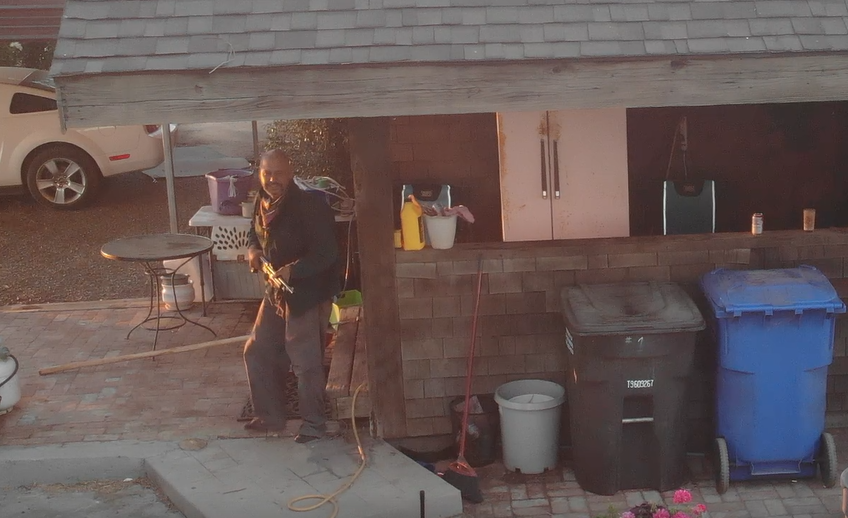
Eduardo Martinez with shotgun during standoff with Contra Costa County Deputy Sheriffs on Thursday, July 9, 2020. Photos by CCCSO
“Female victim reported that she was held hostage overnight by an ex-boyfriend who sexually assaulted her, threw her on a coffee table, tied her to a chair with duct tape, and poured gasoline on her.”
By Jimmy Lee, Director of Public Affairs, Contra Costa County, Office of the Sheriff
The investigation into an officer involved shooting Thursday night in Knightsen is ongoing. Per the county’s law enforcement involved fatal incident protocol this case is being investigated by the Contra Costa County District Attorney’s Office and the Sheriff’s Office. (See related article)
Yesterday, at about 9:38 AM, Delta Station Deputy Sheriffs responded to a home on the 1700 block of Green Acres Lane in Knightsen, in an unincorporated area east of Brentwood, regarding a report of spousal abuse.
The female victim reported that she was held hostage overnight by an ex-boyfriend who sexually assaulted her, threw her on a coffee table, tied her to a chair with duct tape, and poured gasoline on her. The suspect is identified as 44-year-old Eduardo Martinez of Bay Point. He also threatened to burn down the house with her in it. The victim, who said Martinez had a shotgun and pistol, also reported that he made threats to shoot law enforcement and said he did not want to go back to jail. The victim, who is not being identified, was able to escape from the house.
Deputies set up a perimeter around the house and made numerous announcements for Martinez to come out. There was no response. The Sheriff’s Office SWAT Team and Hostage Negotiation Team (HNT) responded to the location at about 12:40 PM.
HNT communicated with Martinez during the afternoon and into the evening asking him to surrender. Martinez fired the shotgun into the ground and shot at Deputies several times during the day and would not give up.
At about 8:58 PM, Martinez came out of the house advancing on deputies and fired his shotgun at SWAT Team members. Three of them were struck. Deputies returned fire hitting the suspect. Martinez was later pronounced deceased at the scene.
One Deputy was struck in his chest but was saved by his bulletproof vest. Another was hit in his head by shotgun pellets and the third was shot in his arm. All have been treated and released from the hospital.
Martinez has had extensive contacts with law enforcement. His previous arrests include: domestic battery, spousal abuse, making criminal threats, false imprisonment, obstruction, receiving stolen property and multiple counts of driving under the influence.
Anyone with any information on this incident is asked to contact the Investigation Division at (925) 313-2600. For any tips, email: tips@so.cccounty.us or call (866) 846-3592 to leave an anonymous voice message.
Read More
For transportation, housing, economy and environment for next three decades
Plan Bay Area 2050’s Draft Blueprint is available for public comment through August 10, 2020
SAN FRANCISCO, July 10, 2020 . . . The Metropolitan Transportation Commission (MTC) and the Association of Bay Area Governments (ABAG) are inviting the Bay Area public to provide input on the newly released Plan Bay Area 2050 Draft Blueprint, a 30-year regional vision that seeks to create a more affordable, connected, diverse, healthy and vibrant Bay Area for all. The Draft Blueprint is being released today for a public comment period that will run through August 10, 2020.
Given the myriad challenges the COVID-19 pandemic poses to the Bay Area, MTC and ABAG will hold virtual workshops and telephone town halls through August 7, 2020. Both organizations want to hear from all Bay Area residents in order to incorporate diverse voices from across our region. Input received by the agencies will be used to further refine the Final Blueprint to create a more resilient and equitable Bay Area for future generations. The Final Blueprint is slated for approval in late 2020 and will be integrated into Plan Bay Area 2050 prior to its adoption in 2021.
The Plan Bay Area 2050 Draft Blueprint weaves together transportation, housing, economic and environmental strategies, alongside an expanded set of growth geographies, to advance critical climate and equity goals. Designed to accommodate the 1.5 million new homes necessary to house future growth and address overcrowding, as well as 1.4 million new jobs, the Draft Blueprint integrates critical strategies to address our severe and longstanding housing crisis. With infrastructure investments in walking, biking and public transportation – as well as sea level protections designed to keep most Bay Area communities from flooding through 2050 – the Draft Blueprint makes meaningful steps towards the adopted Plan Bay Area 2050 Vision.
Plan Bay Area 2050 is a joint initiative of MTC and ABAG. For more information on Plan Bay Area 2050 or to provide comments on the Draft Blueprint, visit: www.planbayarea.org. The entire list of public events can be found here: www.planbayarea.org/meetings-and-events/upcoming-public-events.
See previous plans here – Plan 2040 Plan Bay Area
MTC is the transportation planning, financing and coordinating agency for the nine-county San Francisco Bay Area. ABAG’s mission is to strengthen cooperation and collaboration across local governments to build healthier, stronger communities.
Read More